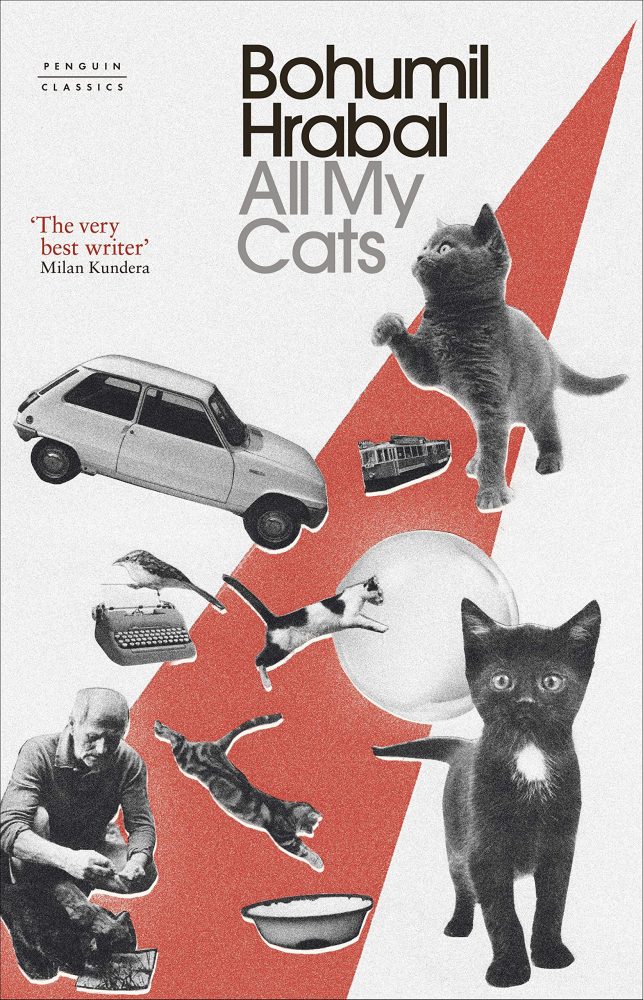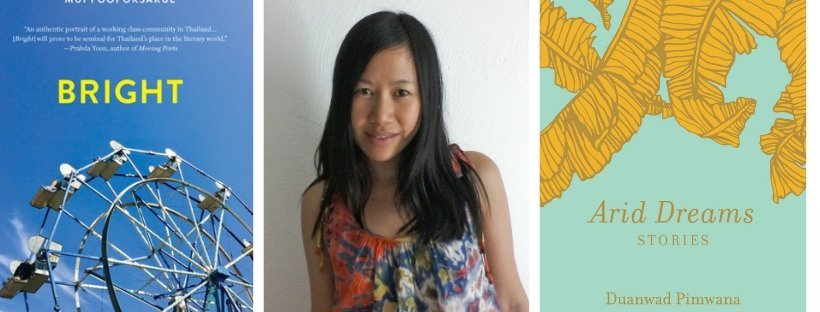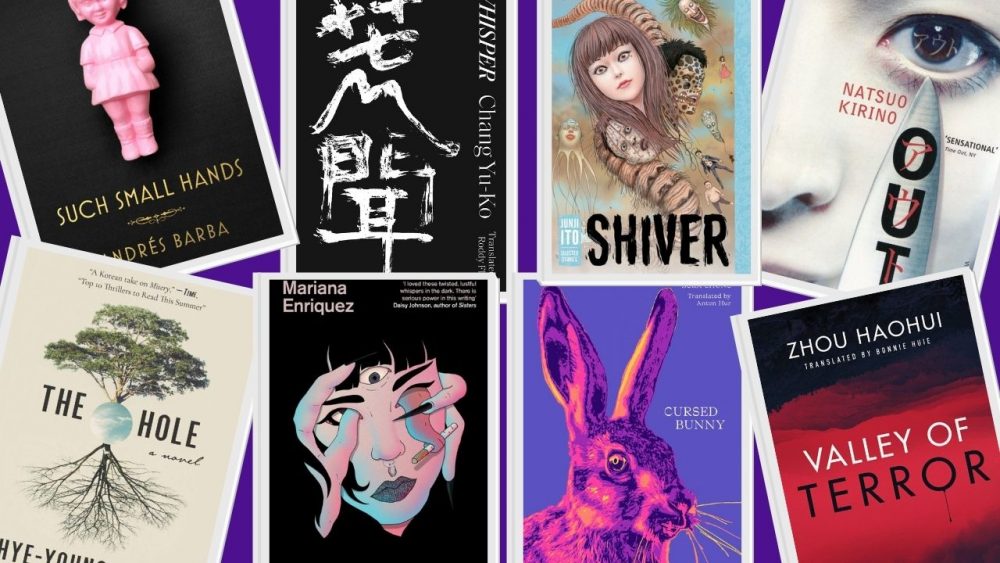The genres of fantasy and science fiction literature have often been associated with male authors (with notable exceptions like Ursula Le Guin and Octavia Butler).
That trend, however, has shifted in recent years, with many of the most celebrated and award-winning sci-fi authors being women and non-binary writers.
So, let’s explore some of the very best sci-fi books by women.
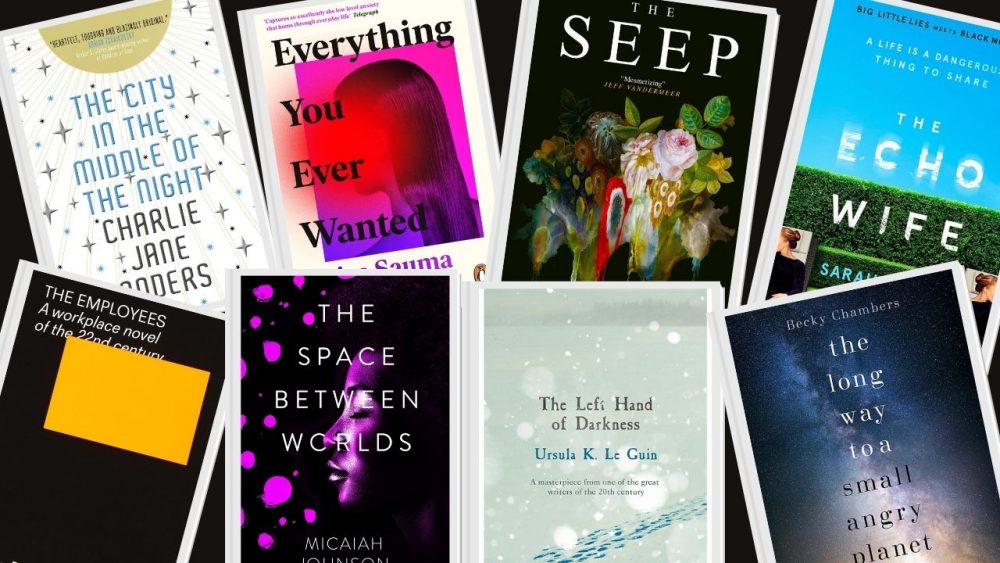
The Best Sci-fi Books by Women
You’ll find a strong range of sci-fi books by women here. Some are expansive and epic space operas; others are quiet and philosophical meditations on life, the universe, and everything.
Whether you like your sci-fi to be fantasy-esque and loud, or subtly smart and introspective — Whether you like sci-fi set in space or hard sci-fi set on Earth in the present or near future — you’ll find a lot to love here.
Note: This list of sci-fi books by women is ever-expanding. Check back regularly for new additions as I read more and more great sci-fi by women.
Read More: Must-Read Modern Sci-fi Novels
Vagabonds by Hao Jingfang
Translated from the Chinese by Ken Liu
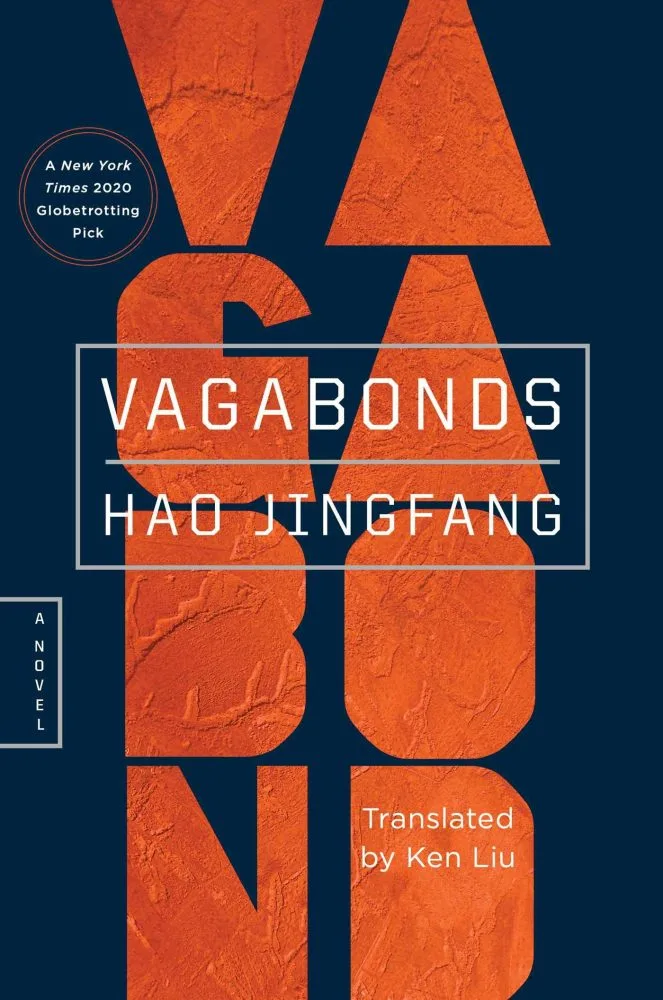
As things stand right now, Hao Jingfang’s Vagabonds feels like the defining sci-fi novel of the decade. This is a grand, ambitious, considered, philosophical masterpiece of political science fiction.
Taking place in 2201, Vagabonds is set on Mars and focuses on the tensions between Mars and Earth. Similar to the timeline of early USA, Mars was colonised (though unlike the US, it wasn’t already lived on and therefore nothing was stolen).
After its colonisation, Mars was dependent on Earth for supplies, but eventually wanted to strike out on its own and a war for independence ensued. After the war, Earth resembles the greatest extremes of capitalism and Mars is something of a communist utopia.
Forty years after the war, our protagonist, Luoying, is a young Martian woman who has returned to Mars after years of living and studying on Earth as part of the Mercury Group (a batch of young people sent over to learn and improve interplanetary relations).
The big question posed by Vagabonds concerns the meaning of freedom. Each planet views the inhabitants of the other with pity, seeing the other as less free.
Terrans are free to pursue different jobs, move cities and countries, and spend their money how they please. Martians are free from the stresses of money, poverty, corporate pressure, unemployment, and unfulfillment.
For their unique freedoms, both planets have their own drawbacks and restrictions. Feeling like she belongs to both cultures, Luoying is seeking answers to the question of what freedom really looks like.
Beyond all of this is the world-building. Hao Jingfang provides us with such a detailed and exciting version of Mars, mechanically, politically, and economically. It’s dense but endlessly fascinating.
While it is a long and slow book, Vagabonds is one to get lost in. A genius work of Chinese sci-fi and one of the best sci-fi books by women.
Read More: Best Chinese Science Fiction
Kindred by Octavia E. Butler
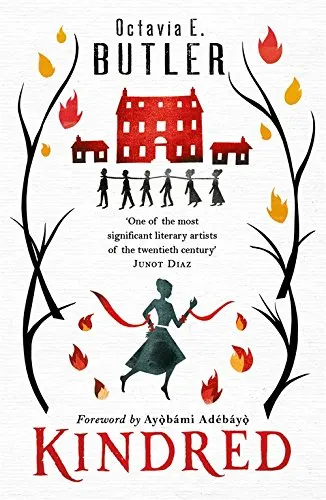
A generation-defining science fiction novel and one of the best pieces of American fiction to come out of the 20th century, Kindred is a masterpiece.
Written by genius author Octavia E. Butler, Kindred is considered by many to be her magnum opus, a piece of literary time travel science fiction.
Originally published in 1979 and set three years earlier, Kindred follows Black writer Dana and her white husband Kevin (also a writer) as they find themselves inexplicably tethered to a family from 1815.
When the novel begins, Dana and Kevin are unpacking after moving to a new house in California, when she finds herself teleported back 150 years to a Maryland plantation and the sight of a drowning boy.
She saves the boy and finds herself facing down the barrel of a gun as thanks, before being yanked back to her present.
As it transpires, the drowning boy is Rufus, an ancestor of Dana’s, and she is now caught in a loop: any time Rufus’ life is threatened, she is pulled back to save him.
Similarly, if she is put in harm’s way while in the past, she is sent back to 1976. On her third journey back to 1815, her husband is dragged back with her.
Being a Black woman married to a white man, Dana is assumed a slave, and Kevin her owner. Kindred is a novel about cruelty and compassion, about the importance of education and empathy.
A true masterpiece of science fiction by one of the US’s most important literary voices, Kindred is one of the most important sci-fi books by women ever written.
Read More: The Best Sci-Fi Books Ever Written
The Long Way to a Small Angry Planet by Becky Chambers
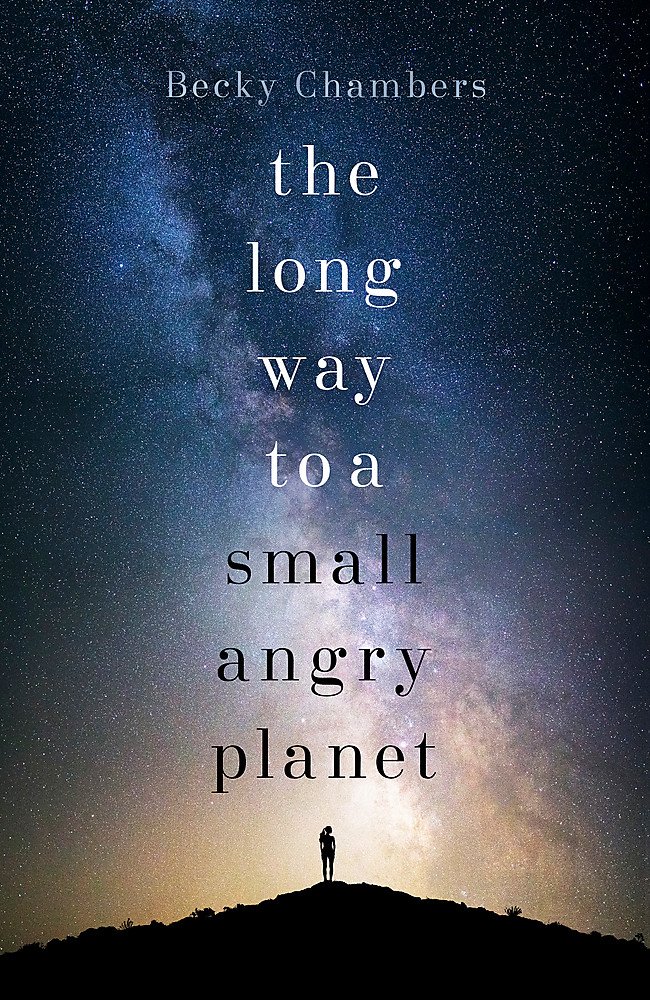
Becky Chambers is a new pioneer of science fiction literature. Her works are fresh and vibrant and colourful. Her perspective is unique, and her voice vital.
The Long Way to a Small Angry Planet was her debut sci-fi novel, and the first book in the Wayfarer series.
While this novel leans on familiar and comfortable tropes and settings, The Long Way to a Small Angry Planet seeks up upend these things to bring readers something refreshingly original.
Set in far-future space, aboard a ship named The Wayfarer, The Long Way to a Small Angry Planet is a found-family sci-fi novel about a crew whose job is to punch literal holes in space, which can then be used as intergalactic shortcuts for travelling vessels.
The novel begins with the ship’s space-born human captain, Ashby, who meets with new Martian crewmember Rosemary. He shows her (and us) around his ship and we get to meet its diverse crew of strange and wonderful alien races.
Much like Star Trek or Mass Effect, this is an epic space opera that shows off its author’s imagination. We meet races with interesting physiology, abilities, beliefs, and politics. We travel to far-flung worlds and meet unexpected obstacles.
The Long Way to a Small Angry Planet is a true space opera with a heavy focus on found family.
What makes it so unique within the genre is how this series is not about war and conflict. Its a peaceful series with a focus on human (and nonhuman) interactions. It is lightly philosophical and politically savvy.
If you are looking to read more sci-fi books by women, start with Becky Chambers and you will not be disappointed.
Read More: Essential Sci-fi Manga
To Be Taught If Fortunate by Becky Chambers
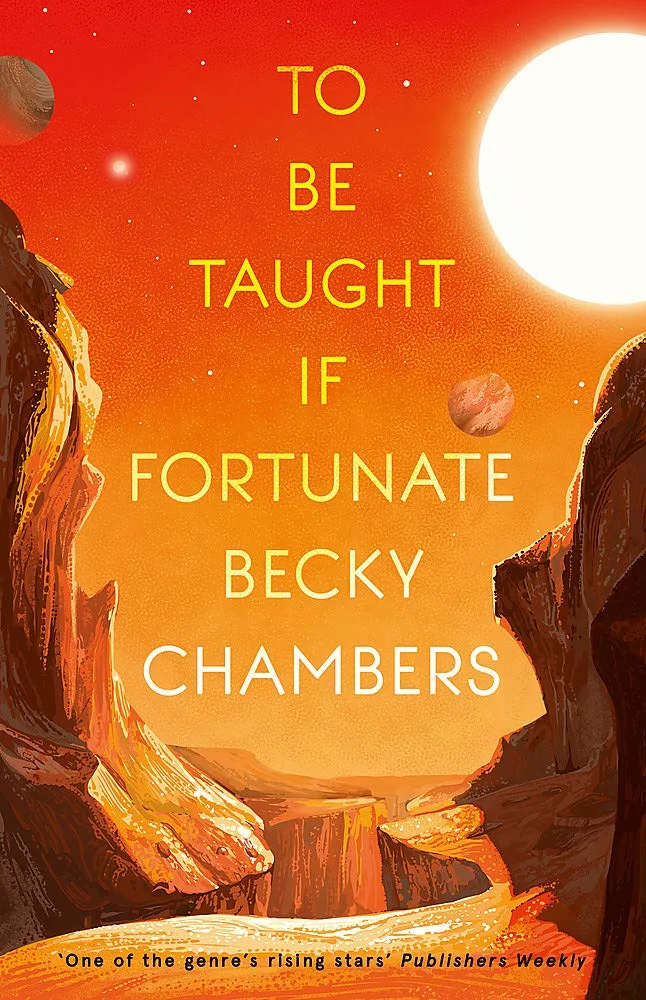
While it may seem cheap to feature two novels by the same author on this list of sci-fi books by women, the sheer diversity of Becky Chambers’ perspectives and approaches to the genre cannot be overstated, and is worth highlighting.
To Be Taught If Fortunate is an original sci-fi novella by Becky Chambers. While the Wayfarer series is a space opera, this is a harder, quieter, more serious story.
This sci-fi novel is set in a future where a new public space program has been kickstarted by the funding of ordinary people, with a specific view to exploring and discovering and expanding human understanding of the cosmos.
A crew of four people has been sent to a faraway solar system, in order to examine the planets and moons that are believed to harbour life.
To Be Taught If Fortunate is another novel that flexes the muscles of Becky Chambers’ imagination. She repeatedly considers what might, reasonably, be found on certain worlds with certain climates.
This is not about imagined civilisations but about biodiversity and small discoveries, about the beauty of life and the magic of exploration. This is a book that celebrates science and what it can achieve.
Easily one of the most impactful and comforting little sci-fi books by women that you’re likely to read in your life.
The Hierarchies by Ros Anderson
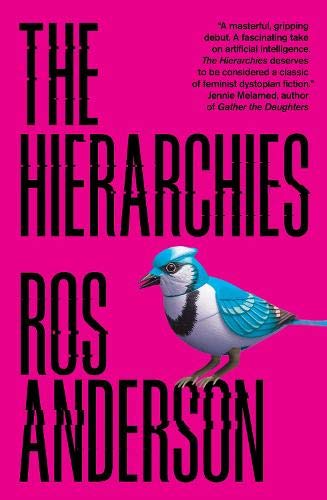
With The Hierarchies, Ros Anderson has managed to do something fresh and new with the well-trodden themes of consciousness and machine learning, while also taking a bold, modern approach to feminist writing.
Our protagonist, Sylv.ie, is a sex robot. She exists to simply please the man who owns her. Sylv.ie’s owner is a married man whose wife is pregnant, and she gives birth soon after the novel begins.
Sylv.ie must stay upstairs, sit idle, browse the internet (here called the Ether), and wait for her husband to come to her with his needs — be they sexual, intellectual, or social.
Sylv.ie’s moral code is governed by a short list of four “hierarchies”, similar to Isaac Asimov’s three laws of robotics, and she is able to learn and develop by plugging herself into the internet.
Soon enough, however, Silv.ie wakes up in hospital for a “routine” check. She gets a shiny new vagina and a simple software update. But upon returning home, she realises that a large section of her memory is missing.
When she finds a coded diary from her past self, a self she no longer remembers, she learns that she has already attempted to escape once, and she must do again.
The Hierarchies is a very nuanced and captivating exploration of consciousness, learning, personal growth, freedom, and purpose. It tackles themes that sci-fi has been tackling since its inception but in bold new ways.
One fresh and fascinating aspect of the novel is the inclusion of an angry group which call themselves “bio women” who protest the existence of female sex robots.
These women are allegorical of conservative bigots who look down their noses at transgender women and sex workers, and their inclusion makes this one of the most bold and dynamic modern sci-fi books you’ll ever read.
Light From Uncommon Stars by Ryka Aoki
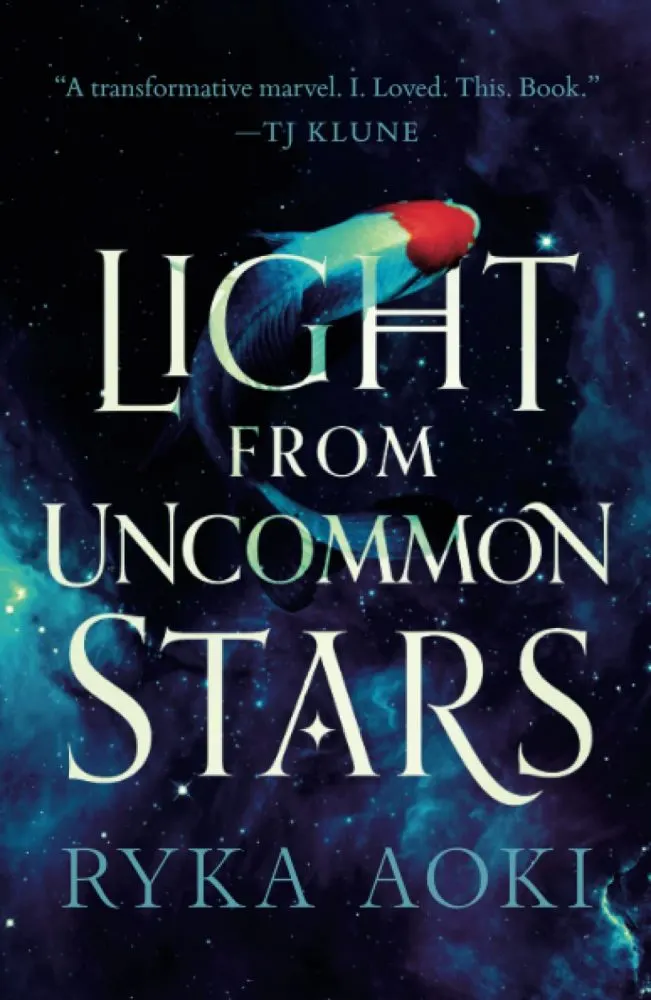
American author Ryka Aoki’s Light From Uncommon Stars is a blending of genres that mixes queer science fiction with urban fantasy.
Here, we have three protagonists: a transgender violin prodigy, a space alien who sells donuts at a California diner, and a woman who made a faustian deal with the devil.
This is one of the finest modern sci-fi books by women; emphasising migration and found family. Our three protagonists are all running from something: an abusive home, hell itself, or a galactic empire.
It’s an experimental novel about love and music and kindness and growth. It reminds us to love one another and, maybe even more importantly, to love ourselves.
Ryka Aoki celebrates music with this novel, emphasising its power, its healing properties, its ability to bring us together and bring out the best in us.
It’s also a sci-fi novel with a focus on everyone who isn’t a white man. Set in California, its protagonists are all queer women from other places: Japan, Vietnam, outer space.
In this way, it is a perfect American novel; one that reminds us of who and what created the US as it exists today.
The Space Between Worlds by Micaiah Johnson
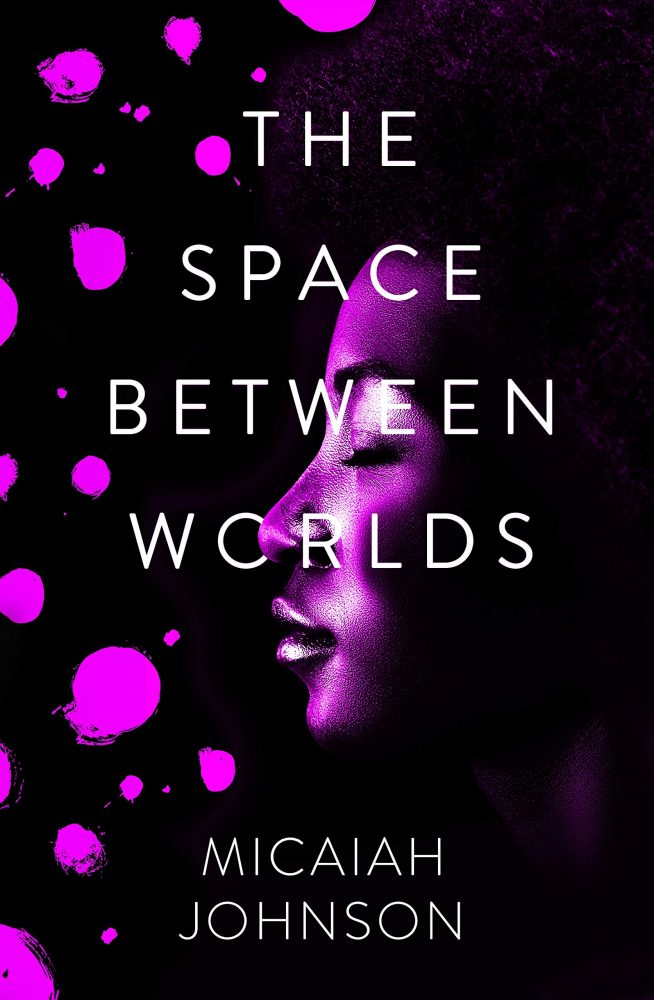
The Space Between Worlds is the debut novel by author Micaiah Johnson; a multiverse-spanning journey of mystery and discovery, and one of the most original and affecting sci-fi books by women on the shelves.
Our protagonist is Cara, a young traverser who moves through 380 different versions of Earth in order to observe and gather data. Her job is simply to report on what makes each version of Earth unique.
What makes this premise fun is that a traverser can only set foot on an Earth if that Earth’s version of them is dead, and Cara is dead in all but eight Earths, due to the difficult circumstances of her birth and youth.
Despite its impressive and ambitious worldbuilding, The Space Between Worlds is actually a rather intimate character-focussed sci-fi novel.
Through this sci-fi novel, Johnson offers us both questions and answers on the themes of identity, nature vs nurture, and the lasting impact of trauma. She gives us satisfying character writing, powerful plot twists, and some nice genre-bending.
Cara herself is the driving force of this novel. A damaged, angry young woman with too much on her shoulders. She is relatable in a tragic kind of way, and someone to watch with unblinking eyes as her journey of discovery becomes more personal than professional.
Read my full New Scientist review of The Space Between Worlds here!
I’m Waiting For You (and Other Stories) by Kim Bo-Young
Translated from the Korean by Sophie Bowman and Sung Ryu
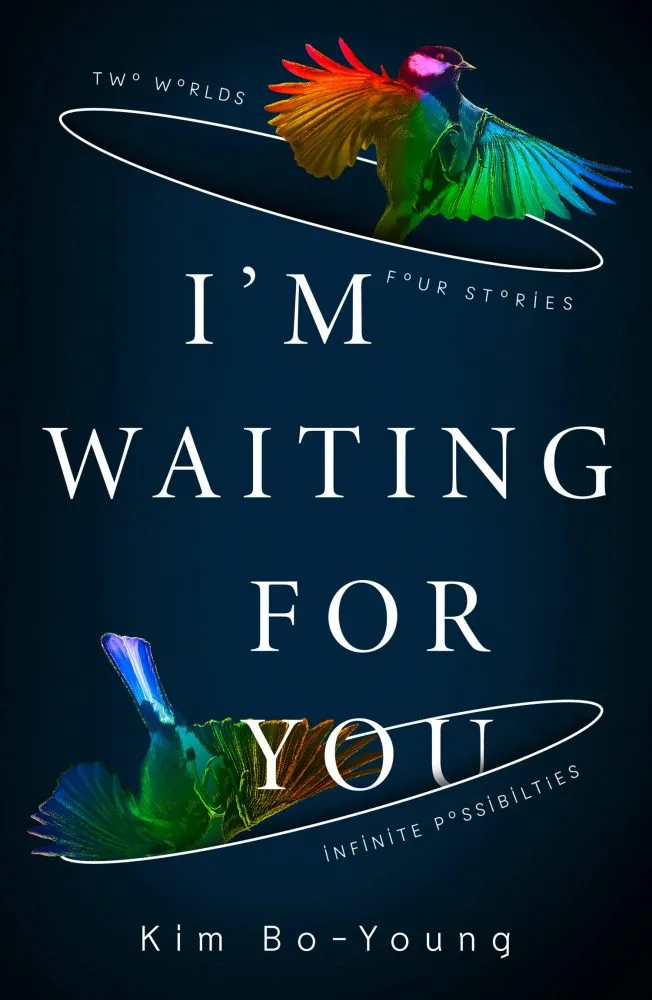
Kim Bo-Young is a legend of Korean literature, and even worked as a script editor on Oscar-winning director Bong Joon-Ho’s Snowpiercer.
With I’m Waiting for You, readers can see first-hand why she’s such a special sci-fi author. This collection of four stories is essential reading amongst sci-fi books by women writers.
The four stories in this collection actually work as two pairs. The first and fourth stories — I’m Waiting For You and On My Way to You — are the same tale told from two perspectives: a bride and groom each making their way home to Earth for their wedding ceremony.
The second and third stories — The Prophet of Corruption and That One Life — which are also the longest and shortest tales respectively, are a blend of religion, mysticism, and science fiction.
In these two middle tales, the characters are a set of gods, and it is quickly revealed that they created Earth as a school in which they themselves can learn and grow.
The main protagonist of The Prophet of Corruption, Naban, is a single god whose prophets, disciples, and children all separated from them like cells. Individually, they spend entire lifetimes on Earth, learning and experiencing and dying.
Naban believes in asceticism as a school of learning; their children are reborn in low roles; they suffer and toil and eventually return home. But some are rebelling against this approach to living and learning.
What makes these stories so tantalisingly addictive is both Kim’s world-building and also her attempt at writing gods as characters, with motivations and behaviours different from our own.
The stories that bookend this collection are each written in an epistolary fashion, as letters to the other. In I’m Waiting For You, our nameless groom is trying to make it to Earth, and is updating his bride each time something goes awry (and a lot goes awry).
The same is true in On My Way to You, only here the bride has her own hurdles to get over. These two stories are heartbreaking. You’ll root for them, cry for them, hope against hope that things will work out for them.
Gideon the Ninth by Tamsin Muir
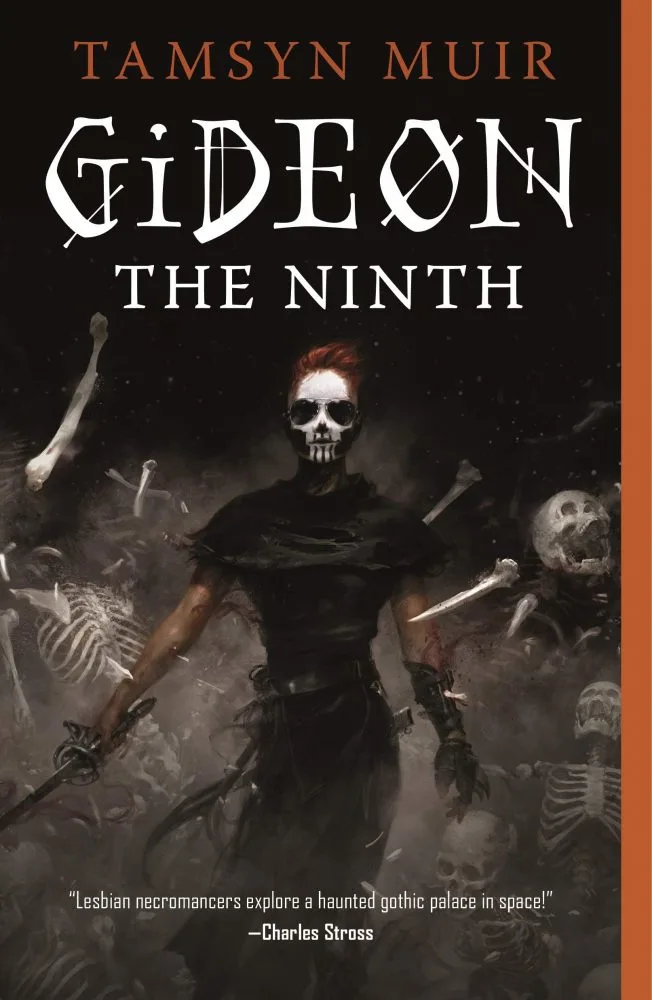
Gideon the Ninth is one of those stories that, like Star Wars and Dune, blends science fiction and fantasy together into a genre sometimes referred to as science fantasy. And it is a rip-roaring good time from beginning to end!
Arguably, Gideon the Ninth doesn’t only cross the sci-fi and fantasy genres. It’s also often a laugh-out-loud comedy and a very angsty YA novel.
This science fantasy novel follows the titular Gideon, a young woman born into servitude on an overlooked planet. This planet is part of a larger empire, and it has been tasked with guarding a tomb that must stay locked.
Immortality, godhood, necromancy, and other gothic-inspired things are the flavours of this book. It is delightfully emo and it leans into that aesthetic in such a fun and campy way.
The leader of Gideon’s planet is Harrowhark, and the two utterly despise each other. But now they must travel together, as necromancer and bodyguard, to engage in a series of trials on the empires main planet.
Gideon the Ninth is easily one of the most unique and fun sci-fi books by women of recent years. It blends adult fantasy world-building and sci-fi politics with a comedic and angsty YA tone that is a whole lot of fun.
The Echo Wife by Sarah Gailey
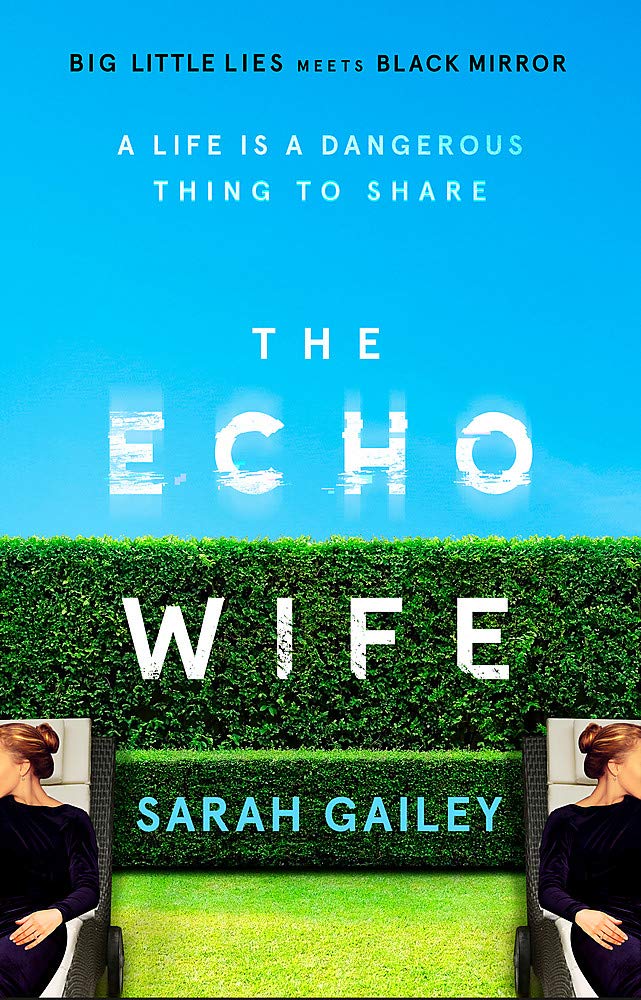
(I’ll say upfront that Sarah Gailey — like myself — identifies as non-binary, but is included on this list of sci-fi books by women because what’s important is that they are not a cisgender male sci-fi author).
The Echo Wife is a grounded piece of speculative science fiction. A deeply personal and human tale of love and loss and betrayal and desperation and death.
Our protagonist, Evelyn, is a research biologist who has seen breakthroughs in the field of human cloning. Her ex-husband, a fellow biologist named Nathan, has recently remarried.
After receiving an award for her work, Evelyn is asked out to tea by Nathan’s new partner, Martine, who turns out to be a clone of Evelyn, grown by Nathan.
Martine also happens to be pregnant, which is something that Evelyn, the leading expert in cloning, believes to be impossible.
To say more would be to spoil a novel full of twists and turns. This is an intimate science fiction thriller, a true page-turner.
What makes this novel so crisp and tight, however, is Evelyn herself. Written as a true scientist, she is clinical and logical in her view of people. She is kind and helpful, but not warm and passionate.
The world of The Echo Wife is also wonderfully well-realised. While perhaps not hard sci-fi, it is grounded enough to feel believable — or, at least, conceivably.
Tightly plotted, elegantly written, and populated with sharp, unique characters, The Echo Wife is a modern masterpiece of speculative science fiction that explores big moral and ethical questions, as all good speculative sci-fi should.
Read my full BookBrowse review of The Echo Wife here!
The Left Hand of Darkness by Ursula K. Le Guin
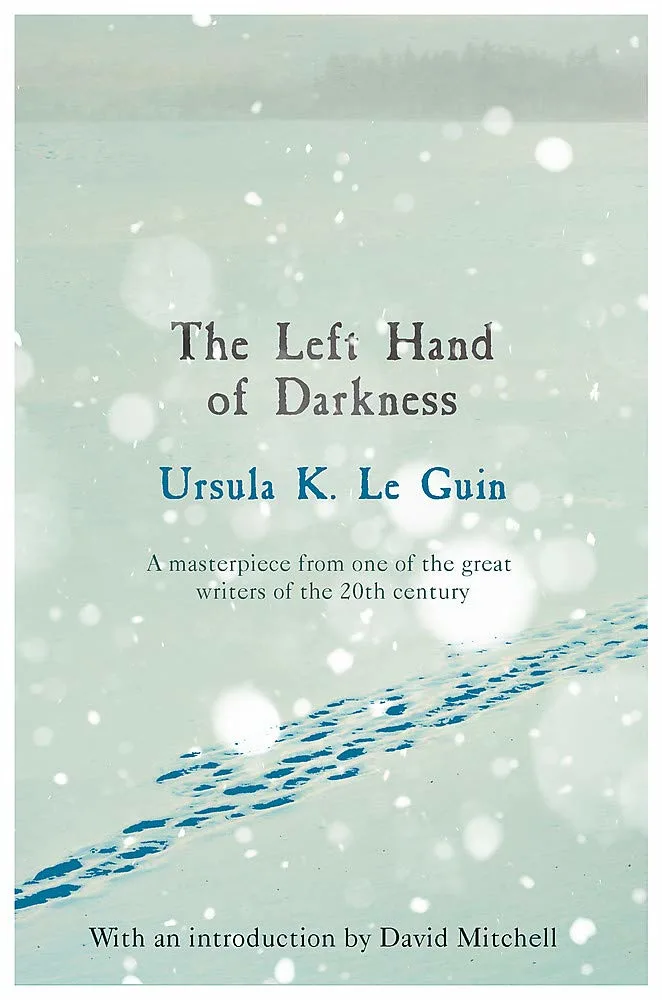
It’s not a list of sci-fi books by women without an Ursula Le Guin novel. Here’s a woman who did so much for the genres of sci-fi and fantasy; a woman of great moral integrity. She loved art, and felt strongly about giving voices to the voiceless.
There aren’t many authors as revered for their works in both the sci-fi and fantasy genres, but Le Guin was special. Her fantasy Earthsea Quartet inspired countless future authors, and her sci-fi novel The Left Hand of Darkness is a vital piece of feminist science fiction.
The Left Hand of Darkness follows Genly Ai, an envoy from Earth who travels to a strange world called Gethen, in the hope that Gethen will join the confederation of planets that Earth is a part of.
Ai is struck, however, by the fact that Gethen’s people are “ambisexual” — they have no fixed gender. This exemplifies the novel’s core theme: the examination of sex and gender, and their impacts on modern society.
Ai has arrived on a world unburdened by societal segregation of gendered groups, a world of Le Guin’s own imagining. This is a concept incredibly enticing and exciting for me personally, as a non-binary reader and writer.
The Left Hand of Darkness has touched many readers on a deep emotional level,as it asks questions about the impact of gendered society and how gender divides work to isolate us as groups and as individuals.
It’s also just an exceptional piece of science fiction; a blend of Star Treke-sque space opera and speculative, philosophical sci-fi.
Ursula K. Le Guin was one of the greatest voices in 20th Century science fiction, and The Left Hand of Darkness is one of the essential sci-fi books by women.
Everything You Ever Wanted by Luiza Sauma
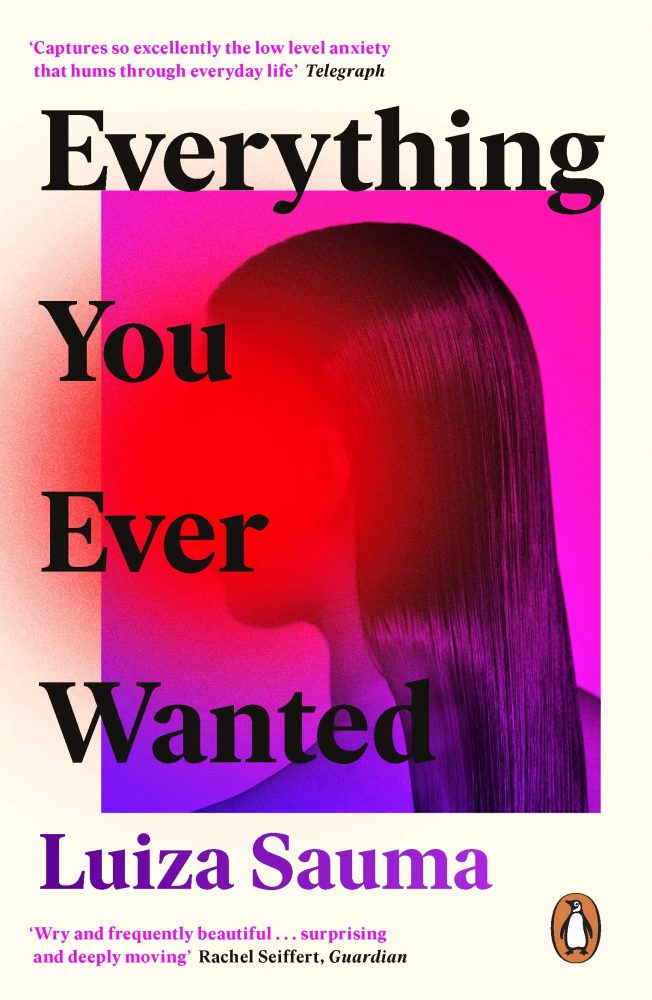
In Everything You Ever Wanted, Luiza Sauma uses the depression, existential dread, anxiety, and hopelessness felt by an entire generation to craft a modern sci-fi novel that is equal parts a fictional treatise on burnout and a call-back to the golden age of sci-fi.
Rather than grand, sweeping futurism, this is an intimate tale of one woman’s yearning for both an escape from the drudgery of our cyclical life and a way to feel like she was part of something important, both personally and professionally.
This woman is Iris, a twenty-eight-year-old office worker in London whose job is to help brands market themselves digitally. She is deep in the toxic pond that is the capitalist machine, helping faceless, disembodied corporations maximise their reach.
Suddenly, there comes news of a wormhole that has opened up in the Pacific Ocean which leads to a distant planet someone has named Nyx.
On the planet, a man named Norman sets up a colony and, eventually, this colony of engineers and scientists puts out a call for a hundred ‘ordinary people’ to make the one-way journey to Nyx.
Once there, they’ll live, work, and be free from the cycle of modern life forever. They’ll also have their daily lives broadcast on TV back home in a sort of Big Brother-esque reality TV show.
Despite daunting, looming dread, Sauma also injects Everything You Ever Wanted with a wicked wit and some fantastically funny moments that draw out both little snickers and big belly-laughs.
There is a real wisdom to a lot of what Luiza Sauma has done with Everything You Ever Wanted. She has framed the novel as a millennial tale, defined by social media and hashtags, cynical references to veganism, yoga, and other trends.
Everything You Ever Wanted is one of the most original, existential, and exciting sci-fi books by women to have come out in recent years, and essential reading for those who relate to it, and those who don’t.
Read my full review of Everything You Ever Wanted here!
The Seep by Chana Porter
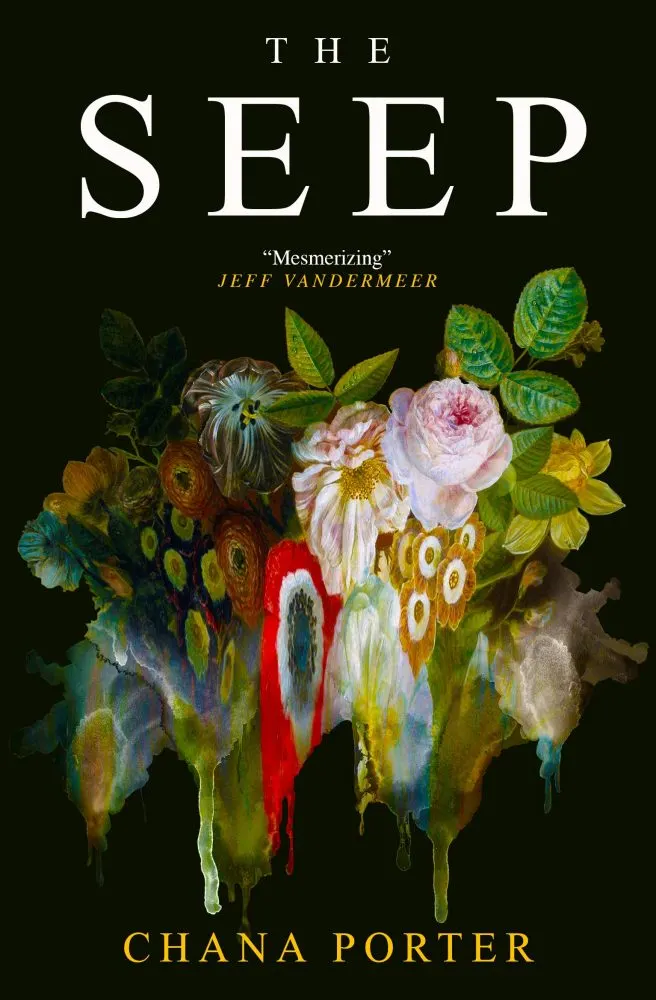
Chana Porter’s short novel, The Seep, is a unique kind of sci-fi that pushes the genre in new directions while also harkening back to the golden age of the genre.
In spite of how modern and boundary-pushing this novel is, it also has strong John Wyndham vibes, which is fun.
The titular Seep is an alien lifeform which invades Earth in a very quiet way. It literally seeps into our water supply, into our minds, and our lives. It causes capitalism to fall and life to become far more hedonistic for all.
Under the thrall of the Seep, all is possible. People live longer, pursue their dreams, change their physiology, and live free.
Our protagonist is a fifty-year-old trans woman who, after many years of living with the Seep, creating art, and retraining as a doctor, is suddenly floored when her wife says she wants to use the Seep to be reborn afresh, as a baby with no memory of her life.
The Seep is a novel about what a world of infinite possibilities might look like, when we still retain our need for companionship and love and kindness. It’s a book of uncomfortable juxtapositions and a real twist on the alien invasion concept.
The Employees by Olga Ravn
Translated from the Danish by Martin Aitken
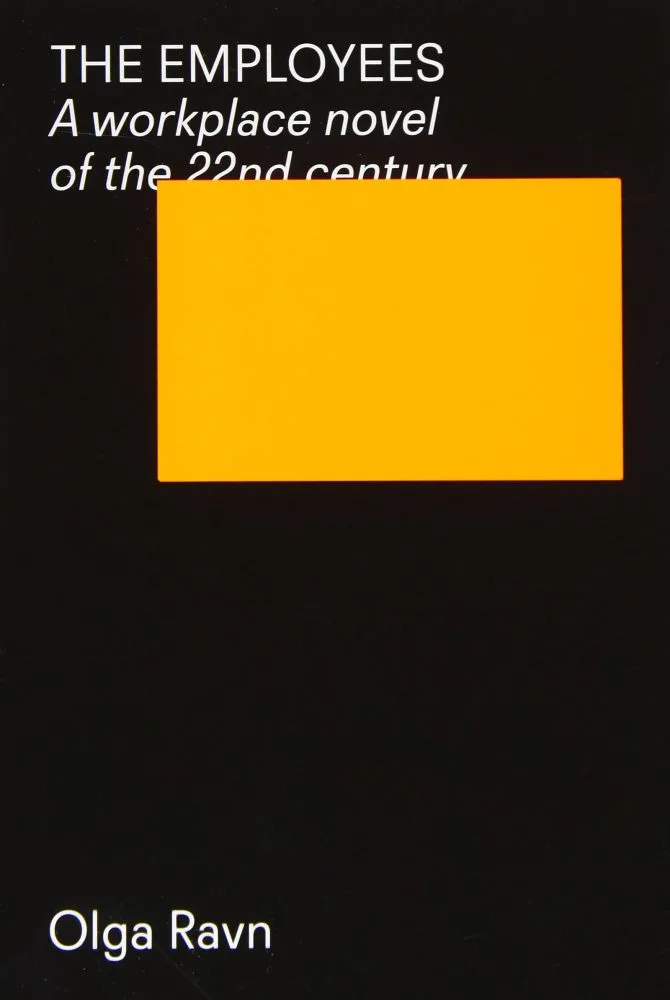
Shortlisted for the International Booker Prize 2021, The Employees is a short sci-fi novel by Danish author Olga Ravn. Set on a massive spaceship in the 22nd Century, this is a satire of hypercapitalist workplace culture.
The Employees is structured as a series of interview statements with various workers about a ship which has just picked up a collection of unknown objects from a newly discovered planet.
The objects are slowly and subtly changing the minds and feelings of the workers, both human and humanoid (robot AI). And the company is observing these changes through a series of interviews with both groups.
This Danish sci-fi novel explores the theme of AI and the meaning of life in truly fresh and original ways. It also satirises the cold and uncaring relationship between a company and its workforce.
The company sits silent and invisible as its human employees grow increasingly nostalgic about life on Earth, while its robot employees feel lost, wistful, and even angry as they too become nostalgic, but for what?
The concept of AI and the ethics behind it are considered from new angles, such as when one humanoid observes that it has been programmed to behave faithfully, but all it sees are hypocritical and unfaithful humans all around it.
The Employees is one of the most original and unique science fiction novels to come along in years, and an absolute must-read amongst sci-fi books by women authors.
The City in the Middle of the Night by Charlie Jane Anders
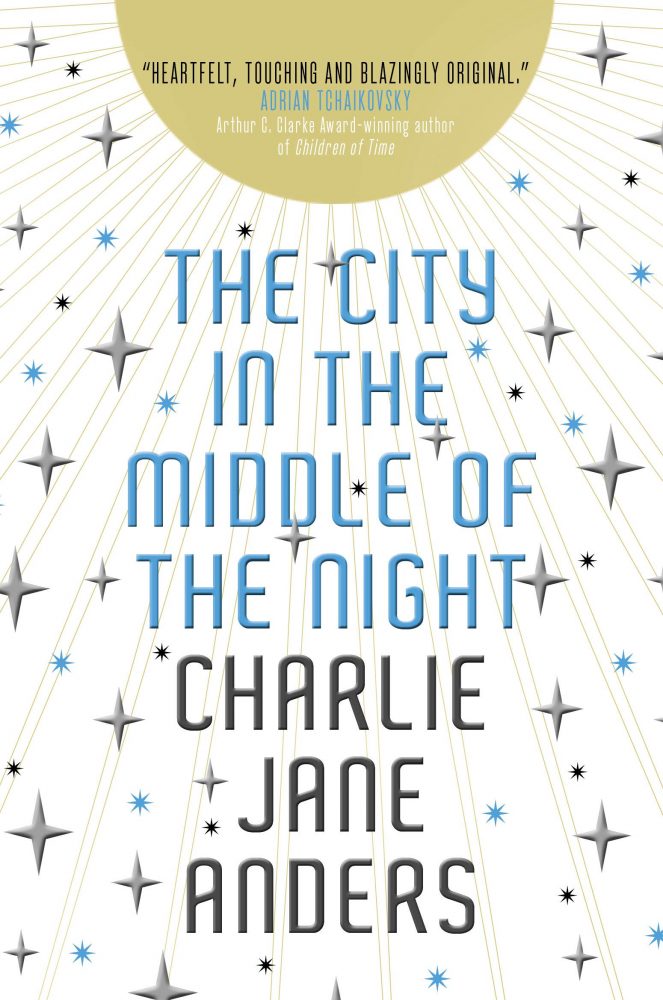
Charlie Jane Anders made waves with her debut YA novel All the Birds in the Sky. Her follow-up, The City in the Middle of the Night, leans more heavily on the traditional sci-fi setting and story.
This is a novel set on a hazardous planet called January. Humanity lives in cities separated by hot and cold wastelands; the planet is in a fixed axis, with one side a bright and hot desert, the other a dark and cold tundra.
Our protagonist, Sophie, begins as a university student with a crush on her roommate Bianca. The two are protesting the militant oppression of their city’s government when Sophie is taken and tossed out on the ice to perish.
Sophie, however, is befriended by a native alligator-crab thing she names Rose. Rose belongs to an intelligent race who have built a city of their own.
After sneaking back into the city, Sophie goes into hiding and remains officially dead, while Bianca befriends a former nomad named Mouth who wishes to join the revolution for personal reasons.
This is a YA sci-fi novel that often feels like a Frankenstein’s monster, built from familiar themes, tropes, and character models. This is no bad thing, however, as Anders manages to make it all her own.
If you like your sci-fi books by women to be accessible and engaging YA novels, The City in the Middle of the Night is what you’re looking for.
Chilling Effect by Valerie Valdes
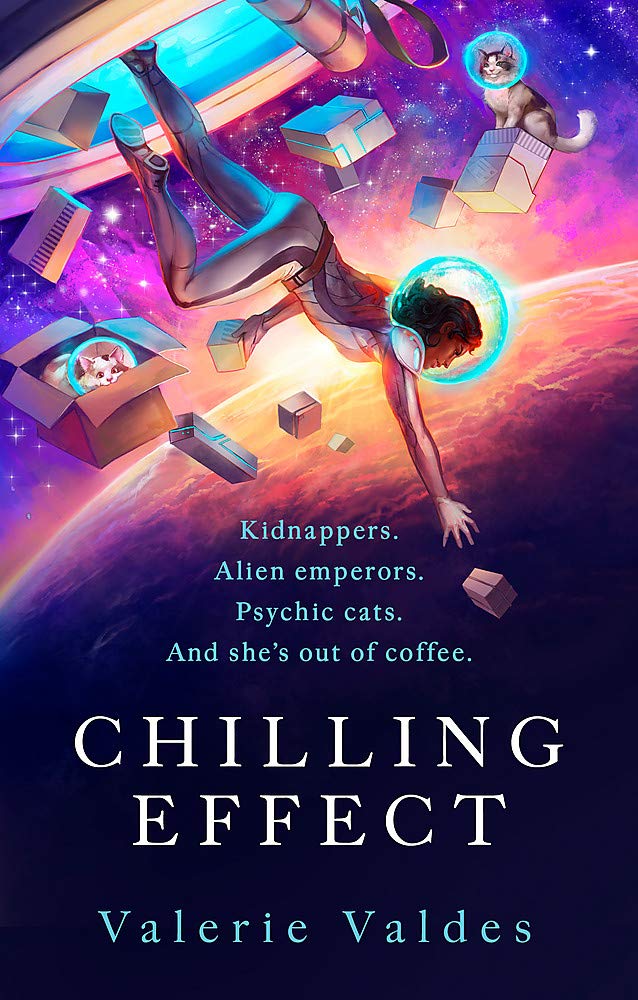
American author Valerie Valdes’ Chilling Effect is another debut YA sci-fi novel that made a splash upon publication. With action, adventure, and comedy driving it, this is a fun romp of a space opera.
Captain Eva Innocente leads the crew of her ship, La Sirena Negra. When we begin, she is scrambling down the ship’s hallways, collecting up a herd of escaped psychic cats, only to then be told by her buyer that they are no longer interested.
Eva and her crew struggle from one job to another, carrying cargo here and there while trying to keep their heads down and out of trouble.
Trouble often finds her, however. Like when she’s at a bar and a powerful emperor offers to buy her body. When she enthusiastically declines, her face is slapped on a wanted poster. Shortly after this, Eva’s sister is kidnapped and she needs to pay the ransom.
Chilling Effect is a fun YA sci-fi journey, populated by colourful and likeable characters. It wears its video game influences on its sleeve with pride, and makes for a thrilling adventure for any and every young sci-fi fan.

